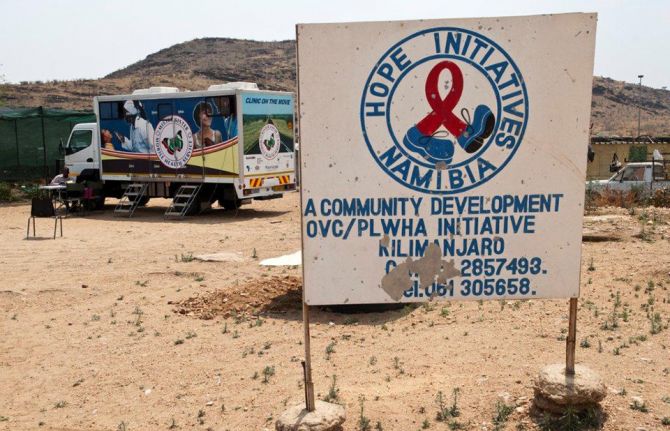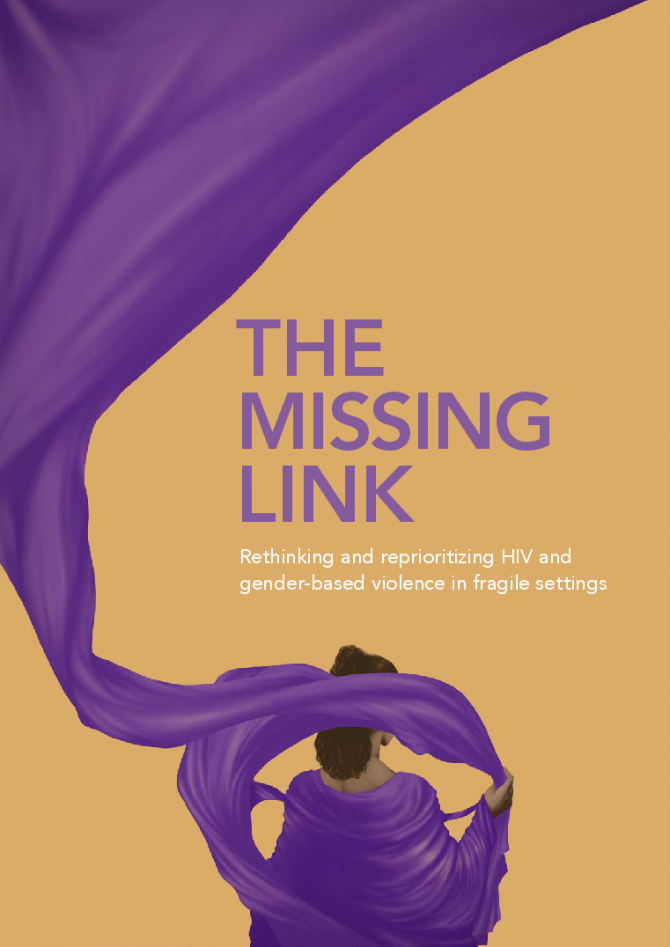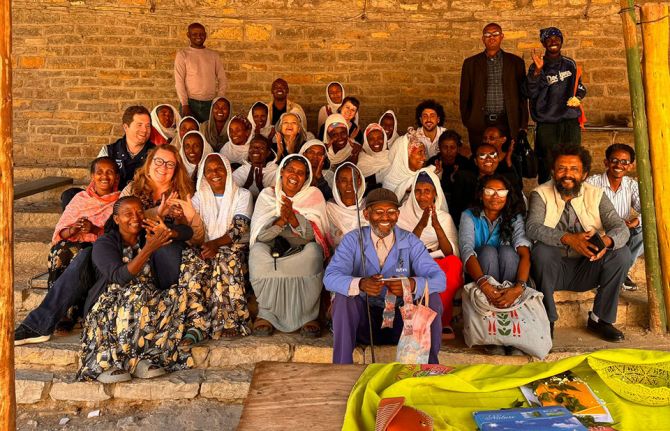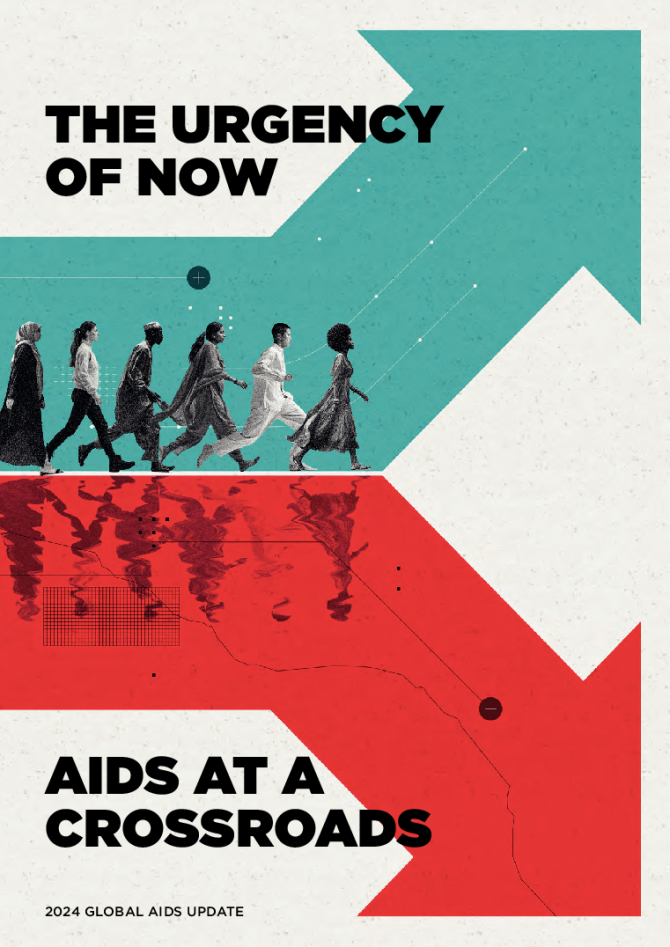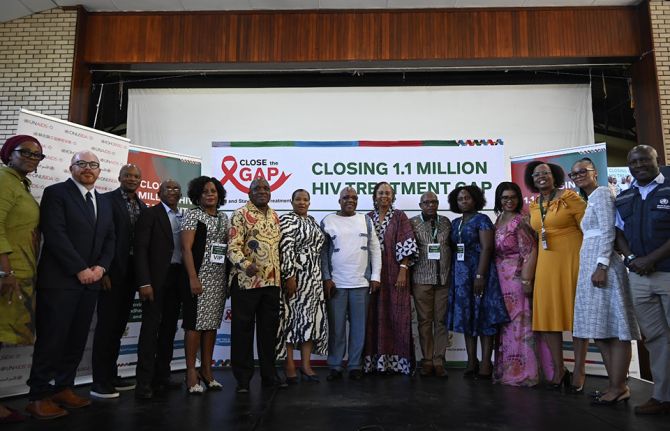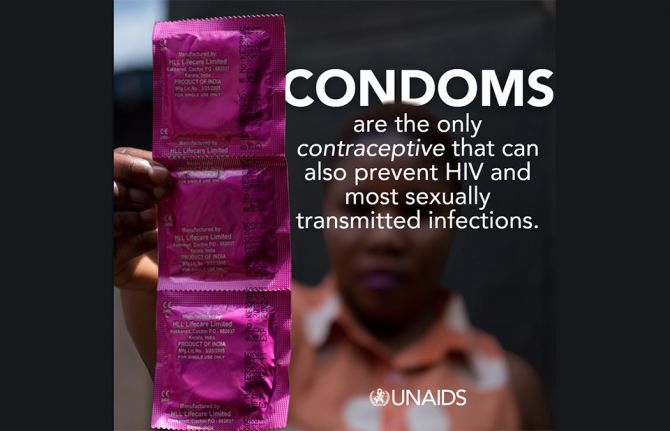Gender based violence


Press Statement
UNAIDS calls for rights, equality and empowerment for all women and girls on International Women’s Day
06 March 2025 06 March 2025GENEVA, 6 March 2025– Ahead of International Women’s Day, 8 March, UNAIDS calls for renewed efforts in support of gender equality to facilitate increased and accelerated access to HIV services for women and girls.
Great progress has been made in preventing new HIV infections among women and girls in the past two decades. The rate of new HIV infections declined by 63% among adolescent girls and young women between 2010 to 2023. However, women and girls remain most vulnerable to HIV. In sub-Saharan Africa, adolescent girls and young women aged between 15-24 years are three times more likely to be newly infected with HIV than men and boys the same age. Every week 4000 young women and girls become infected with HIV globally; 3100 of them are in sub-Saharan Africa.
UNAIDS urges continued funding to support women and girls to prevent new HIV infections, to stop gender-based violence - which heightens women’s and girls’ risk for HIV infection - and to ensure access to treatment, if prevention fails.
“There is a deep injustice faced by women and girls - their vulnerability to HIV,” said Winnie Byanyima, Executive Director of UNAIDS. “But when we work with countries to support girls and enable them to complete secondary school, we keep them safer from HIV, from teenage pregnancy, from violence and child marriage. That means HIV programmes for women and girls need to be fully funded and expanded and that women and girls must be able to access the prevention and treatment tools that meet their specific needs. This includes new prevention tools - such as the new long-acting injectable HIV prevention technologies. HIV is a feminist issue, and we cannot wait any longer for gender equality.
This year marks the 30th anniversary of the Beijing Declaration and Platform for Action. Adopted in 1995 in China’s capital city by 189 governments, the declaration remains a fundamental blueprint for women and girls’ rights worldwide. Rooted in the experiences and demands of women and girls, the Beijing Declaration outlined 12 critical areas for action and affirmed women’s right to live free from violence. ‘Human rights are women’s rights and women’s rights are human rights,’ was the rallying cry for feminists at that conference. It still is.
The world cannot wait for another 30 years to fulfill the promise of gender equality. It is key to continue advancing women’s and girls’ rights, promote gender equality, foster empowerment; and ensure that young women and girls can access the life-saving HIV services they need – and deserve.
UNAIDS
The Joint United Nations Programme on HIV/AIDS (UNAIDS) leads and inspires the world to achieve its shared vision of zero new HIV infections, zero discrimination and zero AIDS-related deaths. UNAIDS unites the efforts of 11 UN organizations—UNHCR, UNICEF, WFP, UNDP, UNFPA, UNODC, UN Women, ILO, UNESCO, WHO and the World Bank—and works closely with global and national partners towards ending the AIDS epidemic by 2030 as part of the Sustainable Development Goals. Learn more at unaids.org and connect with us on Facebook, Twitter, Instagram and YouTube.

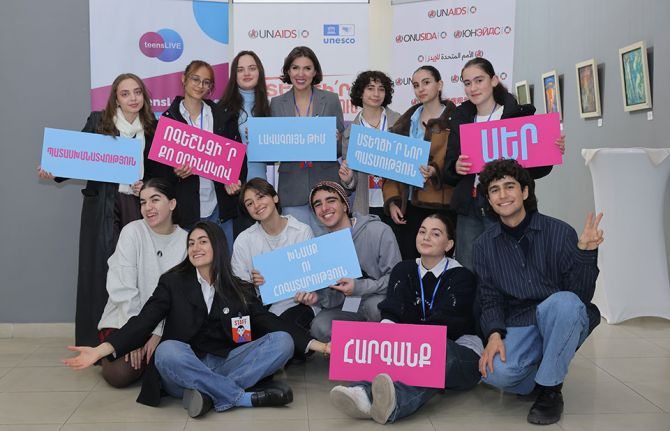
Feature Story
Promoting positive masculinity to end gender-based violence in Armenia
09 January 2025
09 January 2025 09 January 2025A new initiative in Armenia is redefining perceptions of gender roles to end gender-based violence in the country.
Gender-based violence remains a significant challenge in Armenia. Deeply rooted in societal norms and cultural attitudes, it disproportionately impacts women and girls, especially from marginalized and vulnerable groups, increasing their risk to HIV infection and reducing their ability to access HIV prevention and treatment services.
A recent study on perceptions of violence in Armenia, done with support from the European Union showed that, over the past year, more than 80% of women living with HIV or from other key populations reported experiencing violence from a spouse or partner. And a 2023 Gender Assessment report, supported by UNAIDS, stressed the prevalence of gender-based violence in Armenia and underscored the urgent need for actions to address harmful gender norms.
Addressing this issue requires a multifaceted societal effort, including legislation, policies, and cultural shifts. However, a critical component is redefining perceptions of gender roles and masculinity, starting at a young age. To that end, UNESCO and UNAIDS, with support from the Government of the Grand Duchy of Luxembourg launched The Joint Positive Masculinity Project. Addressed to young men aged 16–25, the initiative aimed to foster healthier attitudes toward masculinity, advancing gender equality and reducing violence.
The initiative used diverse and engaging digital content that resonate with young people, including articles, comics, and partnerships with influential local figures like sportsman Levon Hovhannisyan and actor Boris Melqonyan. These collaborations amplified the campaign’s message, sparking critical conversations about redefining masculinity.
A centerpiece of the initiative was a digital masculinity test, designed to challenge traditional views and encourage healthier attitudes. Nearly 2,000 young men participated, providing valuable insights. For example, harmful environments such as bullying, family violence, and misinformation were identified as key contributors to toxic masculinity, with 76.5% of respondents linking these factors to aggressive behavior and unhealthy gender norms.
Personal relationships with family and friends were shown to be the most influential in shaping positive masculinity, demonstrating the importance of interpersonal connections in fostering healthier attitudes.
Participants increasingly rejected harmful traits such as aggression and superiority over women, instead valuing emotional intelligence, care for others, and non-violence.
“The campaign sparked a crucial dialogue among Armenian boys and young men, empowering them to embrace a more inclusive and emotionally intelligent form of masculinity,” said Elena Kiryushina, UNAIDS Gender and Youth officer for the Eastern Europe and central Asia region. “The test results underscore the importance of addressing toxic behaviours in both media and social environments and demonstrate the potential for positive change.”
Through the project’s digital platform, young men openly discussed healthier masculinity, explored ways to manage stress, sought mental health support, and embraced non-violent behaviors. These efforts represent a significant shift toward creating healthier, more equitable gender dynamics.
The campaign achieved over 840,000 impressions across Instagram, Facebook, TikTok, and Telegram, far exceeding its initial targets and signaling a strong appetite for change among Armenian youth.
The campaign aligns with recent amendments to Armenia’s 2017 domestic violence law, which provide a more supportive environment for addressing harmful gender norms. By engaging adolescent boys and young men as agents of positive change, the project challenges entrenched stereotypes and promotes respectful, equitable relationships.
Ekaterina Samolygo, UNESCO IITE Project Coordinator, emphasized, “Gender equality is a fundamental human rights issue and a precondition for sustainable, people-centered development. This initiative is a significant step toward transforming unhealthy beliefs, attitudes, and behaviors to ensure gender equality.”
By empowering young men to redefine masculinity, the initiative lays the groundwork for a healthier, more equitable future for Armenia—one where respect, empathy, and gender equality flourish.
Region/country
Related
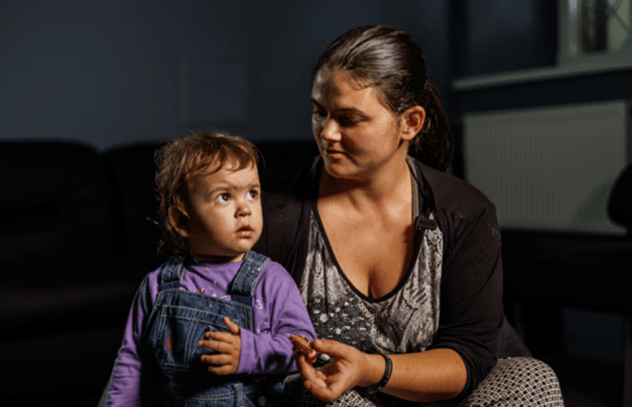 Three Years On: From crisis to prospective recovery
Three Years On: From crisis to prospective recovery

20 February 2025

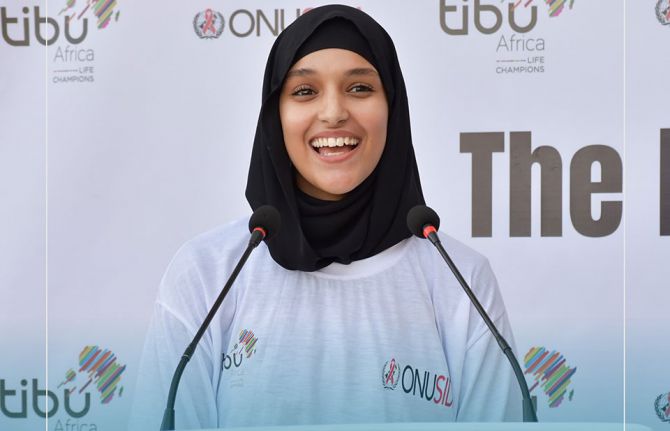
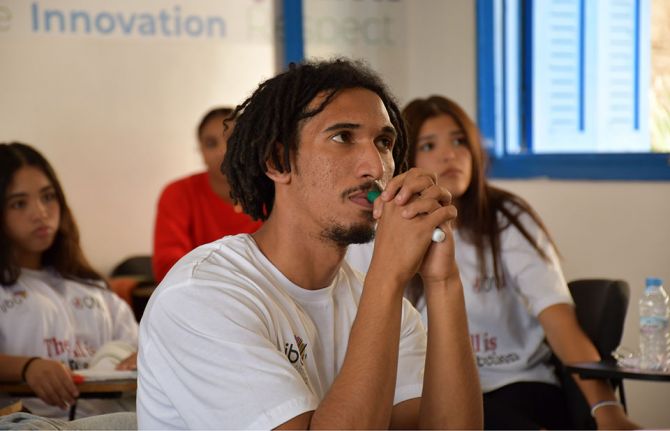
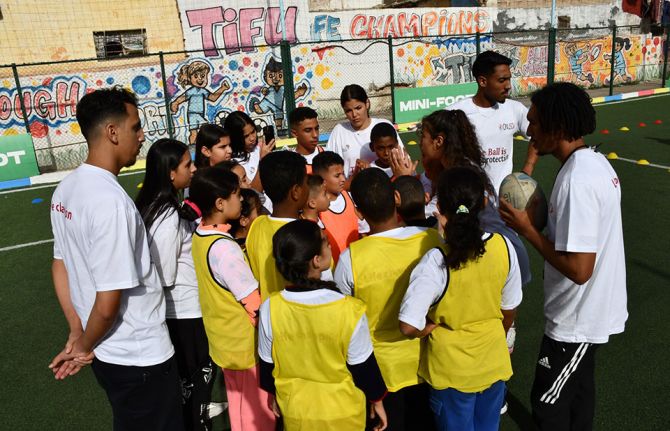
Feature Story
Driving change through sports and HIV awareness
20 December 2024
20 December 2024 20 December 2024Marouane Abouzid, a 25-year-old from Casablanca, grew up in an environment where social challenges and gender stereotypes were pervasive. However, his perspective changed the day he joined "The Ball is Your Protection" program, an initiative by Tibu Africa in partnership with UNAIDS, which uses sports to raise awareness about HIV, gender equality, and gender-based violence.
Before joining the program, Marouane had limited knowledge about HIV and gender equality. “The training on HIV awareness led by UNAIDS and Tibu Africa was a transformative experience,” he says. “It equipped me with essential skills like effective communication and active listening.” Thanks to the program, Marouane discovered how sports can be a powerful tool to engage young people on often-overlooked topics, such as HIV prevention and breaking gender stereotypes.
Now, trained to be a change ambassador in his community, Marouane leads sports activities and participates in educational sessions, becoming a role model for his peers. “I talk openly about what I’ve learned. I encourage my friends to get tested for HIV and respect the rights of others,” he shares.
For Marouane, this program was more than just training. “Today, I feel ready to take action and share what I’ve learned with my community,” he says.
During the closing ceremony of the "The Ball is Your Protection” project, Marouane facilitated workshops and sports activities with other young participants. “I saw how sports could become a tool for awareness and social mobilization,” he explains. These activities created a safe space for young people to discuss issues related to HIV and gender equality, free from societal judgment.
In Morocco, approximately 23,000 people live with HIV, nearly 50% of whom are women. Although the prevalence rate is relatively low, vulnerable groups such as sex workers, men who have sex with men, and people who inject drugs are particularly at risk. “Before, I thought HIV didn’t have a real impact on those around me. Now, I understand that we all have a role to play,” Marouane adds.
Marouane is not alone on this journey. Assia Ezzahraoui, 25, a participant in Tibu Africa’s Sports Vocational School program, reflects: “HIV awareness was a profoundly enriching experience. It gave me new insights into symptoms, prevention methods, and available treatments.” For Assia, taking part in the educational event deepened her understanding of HIV and reinforced the importance of protecting her health and that of those around her.
“I want to thank everyone who contributed to this initiative. Their commitment to young athletes in Morocco is truly inspiring,” says Assia, emphasizing the value of such events in educating youth about HIV.
Thanks to initiatives like "The Ball is Your Protection," young people like Marouane and Assia are playing an active role in addressing gender inequalities and HIV-related stigma. These young leaders are helping to build a healthier and more equitable future, proving that change can start with something as simple as a ball.
Partner
Region/country
Related
 Government ensures continuity of treatment in Malawi
Government ensures continuity of treatment in Malawi

10 February 2025

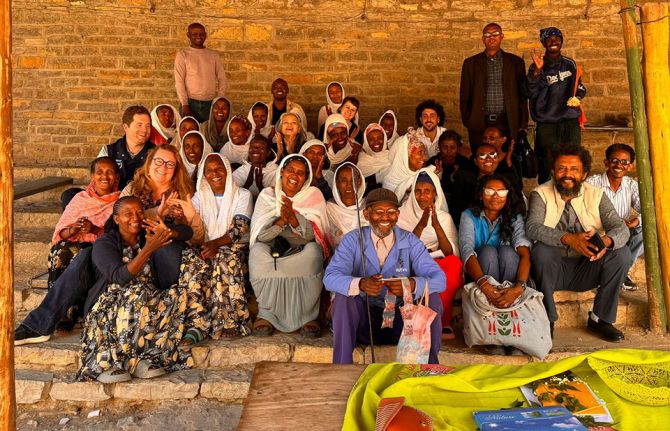
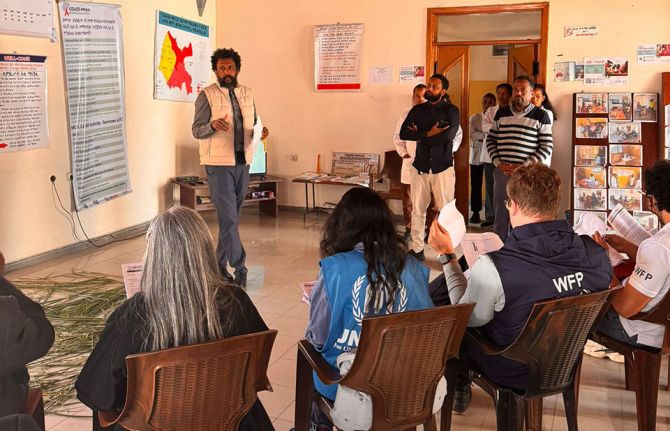
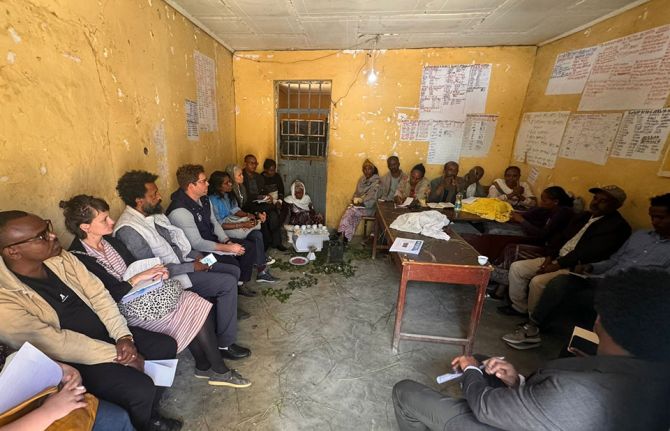
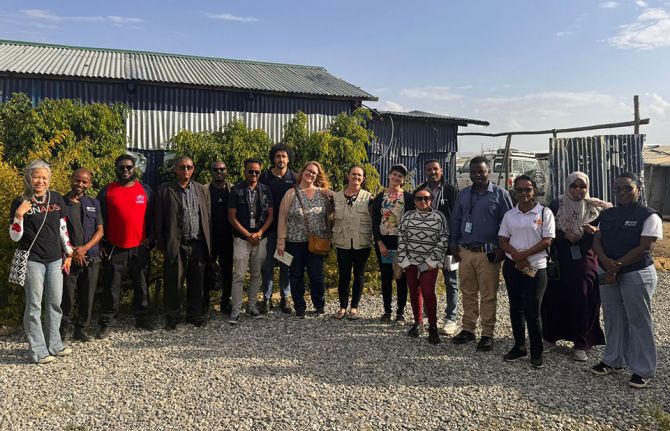
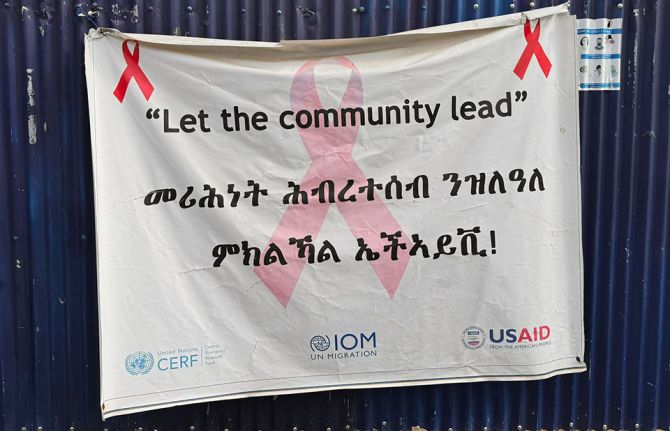
Feature Story
Resilience amid crisis: strengthening the HIV response for displaced communities in Ethiopia
02 December 2024
02 December 2024 02 December 2024Ethiopia faces a triple crisis of conflict, climate change, and displacement that impedes the capacity to provide essential health and other humanitarian assistance to those in need, including people living with HIV.
With support from 2Gether 4 SRHR, UNAIDS and partners recently organised a joint mission to learn about the humanitarian response and to identify the challenges that persist. The findings of the mission will help update the guidelines on Addressing HIV in Humanitarian Settings, a crucial resource for all actors working on HIV in emergency settings, providing evidence-based recommendations for integrating HIV into the different sectors of humanitarian responses.
Ethiopia hosts more than 1 million refugees, predominantly from South Sudan, Somalia, Eritrea and Sudan, the majority of whom live in 24 refugee camps established across five regional states, and 80,000 of whom reside in the capital Addis Ababa. In addition, the country has 4.4 million internally displaced persons (IDPs) and over 1.5 million IDP returnees.
The team visited two of the regions hardest hit by humanitarian crises, grappling with rising HIV rates: Tigray and Gambella. In Tigray, just 5 kilometers from the capital Mekelle, lies Seba Kare (70 Kare) IDP camp—a settlement hosting over 20,000 people displaced by the conflicts in the western and eastern parts of the region. Seba Kare represents both the resilience of its inhabitants and the dire challenges of prolonged displacement. The camp, initially intended as temporary shelter for six months, has now housed many families for over four years. Cramped conditions, insufficient food, limited access to education, and inadequate healthcare services are daily realities for residents. Despite the tireless efforts of humanitarian partners on the ground, the growing needs of the displaced population far exceed the resources available.
Among the most pressing gaps is the lack of comprehensive healthcare, particularly for people living with HIV. In humanitarian crises, critical services for HIV and sexual and reproductive health are often sidelined, overshadowed by the urgent need for food, shelter, and disease control. Healthcare is restricted to primary services. Care for chronic conditions, such as HIV, is referred to government hospitals. This means that all patients, IDP or not, must pay for transportation as well as services and purchase vital medical supplies on their own—an impossible burden for many.
Despite the continuous advocacy efforts in support of the decentralization of services and outreach interventions at camp-level, government-owned facilities outside the camp remain the only viable option for IDPs in need of health services.
The refugee camp of Jewi—in the western province of Gambella which has the highest HIV burden across Ethiopia—is equipped with its own antiretroviral therapy center. However, like in Tigray, Gambella faces significant challenges in providing HIV testing and treatment. Limited mobility within and beyond the camps, due to the costs of transport for clients and a shortage of ambulances in medical emergencies, combined with resource constraints at health centres, often results in treatment interruptions and high rates of loss to follow-up.
Adding to the crisis, the recent reduction in donor funding has severely impacted the quality of health services in the camps. The gender-based violence (GBV) center run by International Medical Corps will soon close due to funding cuts, leaving no other GBV services available outside of health services.
The situation for women and youth in Gambella is especially concerning. Limited educational and employment opportunities, compounded by rising HIV infections, put them at higher risk of infection due to the adoption of negative coping mechanisms, including substance abuse. The high rates of new HIV infections exacerbate these existing challenges, underscoring the urgent need for sustained interventions to improve health services, livelihoods, and social inclusion for refugees and host communities in the region. “There are many young and vulnerable people who need protection, shelter, food, income, education – and HIV prevention, testing, treatment and care. We must make sure to rebuild health and social services and fill the current resources gap,” said Tina Boonto, UNAIDS Ethiopia Country Director.
As international organisations step up their efforts to address HIV in humanitarian settings, there is a coordinated push in Ethiopia, at both the federal and regional levels, to ensure that the health needs of people living with HIV are met, even in the most challenging circumstances. The Ministry of Health, with support from UNAIDS, is developing an HIV Baseline Survey in Humanitarian Settings and a comprehensive National HIV/Sexual and Reproductive Health Guiding Document. This initiative is a substantial step towards safeguarding the rights and well-being of people living with HIV across the country.
"Ethiopia's progress in addressing HIV is inspiring,” said Maheswari P Murugayia, Public Health Officer and Global HIV Focal Point at UNHCR. “Tackling HIV in humanitarian settings is not just a priority— it’s a necessity for ensuring the health and well-being of displaced populations.”
Region/country
Related

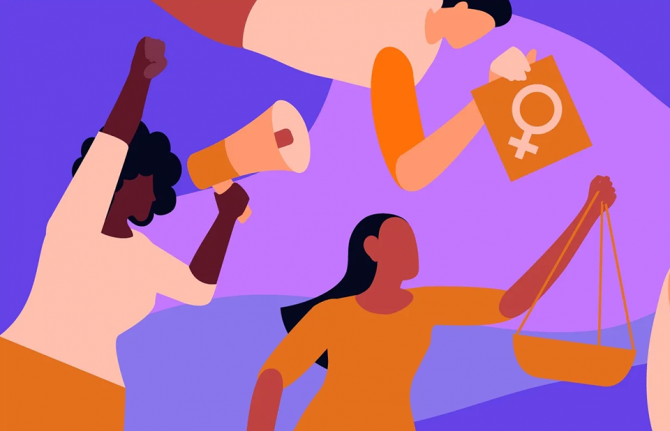
Press Release
UNAIDS calls for an end to violence against women and girls. No excuses
25 November 2024 25 November 2024GENEVA, 25 November 2024—Gender-based violence persists as one of the most appalling violations of human rights. It also thwarts efforts to end AIDS as a public health threat because intimate partner violence is linked with a heightened risk of HIV acquisition among women and undermines access to testing and treatment.
Globally, one in eight women and girls experiences sexual violence before the age of 18. Harmful gender norms, low prioritization of safe, qualitative and affordable sexual and reproductive health services, as well as fragile health systems heighten women’s risk of contracting HIV and prevent access to HIV services.
In addition, women and girls living with HIV are too often stigmatized by health service providers. They also experience pressure not to have children, forced and coerced sterilization or termination of a pregnancy. All violations of human rights.
“We must counter patriarchy and poverty to keep girls in school and we must provide women and girls safe spaces, economic opportunities and ensure their recognition and leadership,” said Winnie Byanyima, UNAIDS Executive Director.
“We must also fight rigid gender norms and stereotypes that perpetuate unhealthy masculinity and violence based on gender."
Gender-related killings of women and girls are the deadliest outcome of gender-based violence with a woman being killed every 11 minutes. This is unacceptable. In 2022, the number of women and girls killed intentionally – nearly 89,000 – is the highest yearly number recorded in the past 20 years. Women from key populations – transgender women, sex workers, and LGBTQ+ human rights defenders - are also at particular risk of femicide according to the Inter-American Commission on Human Rights (IACHR).
On the International Day for the Elimination of Violence against Women this year, the campaign kicked off with the theme ‘UNiTE to End Violence against Women and Girls: Towards Beijing +30.’ These 16 Days of Activism remind us that 30 years after the Beijing declaration - a blueprint for achieving gender equality and women’s and girls’ rights everywhere - the world is far from such a gender equal world.
UNAIDS remains committed to working collaboratively with governments, business, civil society, communities and especially women’s movements and networks to create a world where the rights and dignity of all women and girls are respected and protected, including women and girls living with, at risk of and affected by HIV.
Started in 1991, the 16 Days of Activism against Gender-Based Violence is an international campaign that kicks off on 25 November, the International Day for the Elimination of Violence against Women, and runs until 10 December, Human Rights.
UNAIDS
The Joint United Nations Programme on HIV/AIDS (UNAIDS) leads and inspires the world to achieve its shared vision of zero new HIV infections, zero discrimination and zero AIDS-related deaths. UNAIDS unites the efforts of 11 UN organizations—UNHCR, UNICEF, WFP, UNDP, UNFPA, UNODC, UN Women, ILO, UNESCO, WHO and the World Bank—and works closely with global and national partners towards ending the AIDS epidemic by 2030 as part of the Sustainable Development Goals. Learn more at unaids.org and connect with us on Facebook, Twitter, Instagram and YouTube.

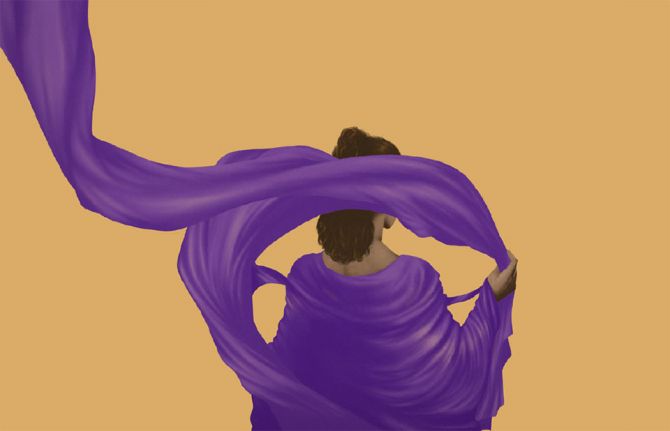
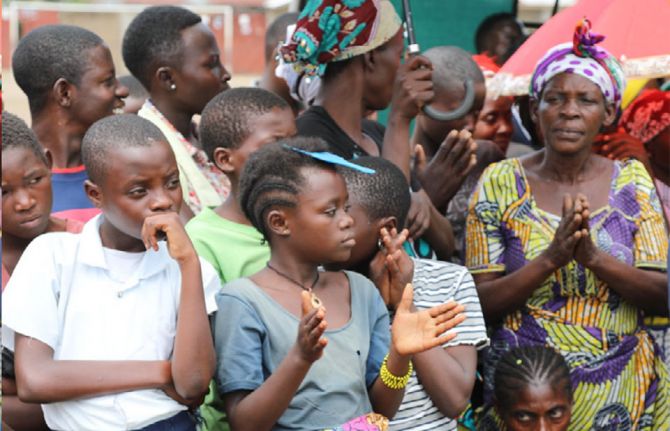

Feature Story
Working to end gender-based violence in fragile settings
28 August 2024
28 August 2024 28 August 2024Across the world, spikes in instability, displacement, and conflict are exacerbating people’s vulnerability to gender-based violence and to HIV.
“Gender-based violence is an egregious human rights violation. It is also a driver of the AIDS pandemic, especially in fragile states. Tackling gender-based violence is essential to uphold the right to health and life for everyone,” says UNAIDS Executive Director, Winnie Byanyima.
Efforts to prevent and to respond to HIV and gender-based violence in fragile settings remain partial, isolated, and unstable despite normative commitments made at the global level.
Fragility is described by the Organisation for Economic Co-operation and Development as “…the combination of exposure to risk and insufficient coping capacities of the state, system, and/or communities to manage, absorb or mitigate those risks.”
The new report, The Missing Link: Rethinking and reprioritizing HIV and gender-based violence in fragile settings, reveals the results of a study on the linkages between HIV and gender-based violence in fragile settings. This issue is explored through the lens of peace support operations. Work was partially funded through the generous contribution of the Grand Duchy of Luxembourg to UNAIDS.
The study examines the mandates and objectives of peace support operations, revealing that HIV and gender-based violence remain deprioritized, with responses of peace support operations often disconnected. Several challenges in translating agreed-upon principles into actionable results are identified and recommendations are offered to address these barriers.
“This report provides a crucial guide to support strategic decision-making in HIV and GBV advocacy in peace support operations and will be a vital tool for addressing these urgent challenges effectively,” says Sihaka Tsemo, Director, UNAIDS Liaison Office to the African Union & UNECA.
The report provides guidance to duty bearers across the development, peace and security and humanitarian arenas.
In the Democratic Republic of the Congo, for instance, the UN peacekeeping mission, MONUSCO, is in an active process of withdrawal and transition. UNAIDS Country Director, Susan Kasedde, reflects on the vital role of the UN’s Joint Programme on HIV and AIDS in addressing the multifaceted interlinkages between HIV and gender-based violence in fragile settings:
“The Joint Programme brings together invaluable expertise for a holistic response and plays a crucial role in strengthening state capacity to lead and deliver, through supporting strengthened systems for accountability and governance, and through facilitating broad partnerships, including with communities, to enable transformative and sustainable changes and take to scale effective models for integrated delivery of HIV interventions on the ground.”
In Mali, the decade-old Multidimensional Integrated Stabilization Mission has recently completed its withdrawal. UNAIDS Country Director, Marc Saba, explains the role of the United Nations Gender Thematic Group in supporting internally displaced persons in localities affected by insecurity and the humanitarian crisis.
“In the past 8 months the UN Country Team in Mali, under the leadership of UN Women, has provided capacity building, food support and funds to carry out income-generating activities to over 1000 women, young girls and men in vulnerable situations. In addition, the UN Joint Team on AIDS plans to launch a study on HIV and gender in humanitarian contexts, with the goal of collecting and analysing data to better understand these issues within the humanitarian response.”
The Missing Link report underscores the critical need for well-coordinated, multisectoral approaches to address HIV and gender-based violence effectively in fragile settings. It contributes to a wider conversation which requires further research, collaboration and multisectoral engagement. It provides recommendations for building a more holistic, human-rights based and gender transformative approach to addressing and eliminating gender-based violence in all its forms in fragile settings.
“To end gender-based violence and to end AIDS, depends on uniting efforts across multiple sectors, on survivor and community-centred approaches, and on sustained investment.” says Winnie Byanyima, UNAIDS Executive Director.
The issues raised in the report will be discussed in a stakeholder roundtable scheduled for 10 September 2024.
The webinar will be via Zoom on 10 September 2024 at 13:30-15:00, Geneva, Switzerland time. It will be 11:30 in Dakar, Senegal, and 14:30 in Addis Ababa, Ethiopia. Simultaneous interpretation into English and French will be provided.
Kindly click on the link below to register and participate, and do not hesitate to share information about the webinar with your networks.
Documents
The missing link: Rethinking and reprioritizing HIV and gender-based violence in fragile settings
21 July 2024
This report explores the extent to which evidence, policy, normative guidance and commitments on HIV and gender-based violence, and their interlinkages, is being translated into action on the ground in fragile settings. These issues are explored through the lens of training of peace support operations deploying African troops across Africa and beyond. Translations: français | português | عربي
Related
 UNAIDS calls for rights, equality and empowerment for all women and girls on International Women’s Day
UNAIDS calls for rights, equality and empowerment for all women and girls on International Women’s Day

06 March 2025
Impact of community-led and community-based HIV service delivery beyond HIV: case studies from eastern and southern Africa
30 January 2025
A shot at ending AIDS — How new long-acting medicines could revolutionize the HIV response
21 January 2025
Indicators and questions for monitoring progress on the 2021 Political Declaration on HIV and AIDS — Global AIDS Monitoring 2025
17 December 2024
UNAIDS data 2024
02 December 2024
Documents
2024 global AIDS report — The Urgency of Now: AIDS at a Crossroads
22 July 2024
This UNAIDS 2024 report brings together new data and case studies which demonstrate that the decisions and policy choices taken by world leaders this year will decide the fate of millions of lives and whether the world’s deadliest pandemic is overcome. Related links: Press release | Special web site | Executive summary | Fact sheet | Video playlist | Epidemiology slides | Data on HIV | Annex 2: Methods Regional profiles: Asia and the Pacific | Caribbean | Eastern Europe and Central Asia | Eastern and Southern Africa| Latin America | Middle East and North Africa | Western and Central Africa | Western and Central Europe and North America Thematic briefing notes: People living with HIV | Gay men and other men who have sex with men | Transgender people | Sex workers | People who inject drugs | People in prisons and other closed settings | Adolescent girls and young women | Other translations: German
Related
 U=U can help end HIV stigma and discrimination. Here’s how
U=U can help end HIV stigma and discrimination. Here’s how

27 February 2025
 How the shift in US funding is threatening both the lives of people affected by HIV and the community groups supporting them
How the shift in US funding is threatening both the lives of people affected by HIV and the community groups supporting them

18 February 2025
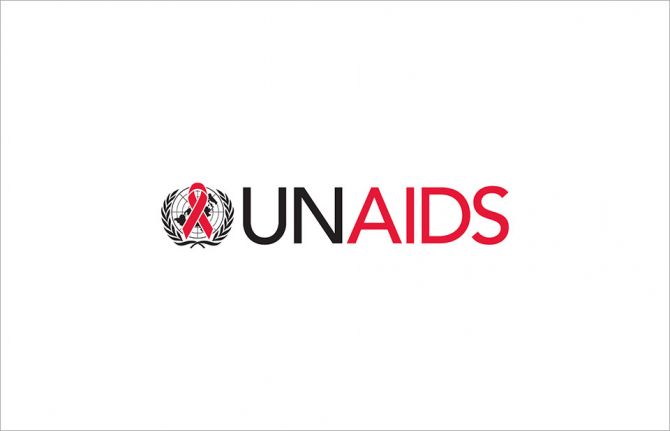 UNAIDS urges that all essential HIV services must continue while U.S. pauses its funding for foreign aid
UNAIDS urges that all essential HIV services must continue while U.S. pauses its funding for foreign aid

01 February 2025

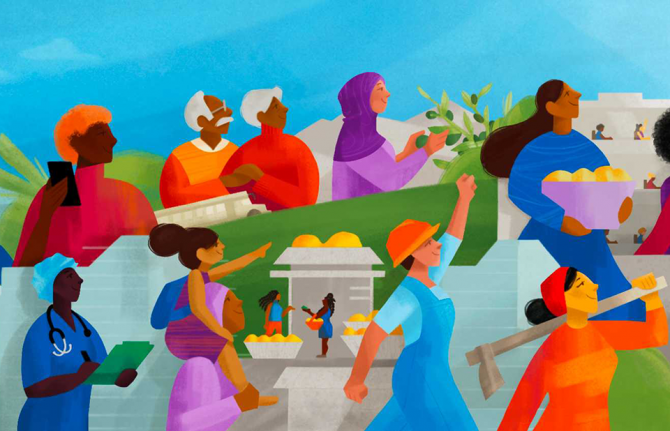
Press Release
UNAIDS welcomes governments’ commitment to end AIDS, tackle gender-based violence, discrimination and inequalities
25 March 2024 25 March 2024Resolution on ‘Women, the Girl Child and HIV and AIDS’ updated, strengthened and adopted by consensus at the 68th session of the Commission on the Status of Women
GENEVA/NEW YORK, 25 March 2024—On 22 March, governments attending the 68th session of the Commission on the Status of Women (CSW) adopted, by consensus, a resolution focused on advancing the rights and empowerment of women and girls as part of efforts to end AIDS.
The updated resolution 60/2, Women, the Girl Child and HIV and AIDS, underscores the urgent need to prioritize the health and rights of adolescent girls and young women in the context of the ongoing global AIDS pandemic. It recognizes that adolescent girls and young women are still disproportionately affected by HIV due to various socio-economic factors, including gender inequalities, poverty, and lack of access to education and healthcare.
The resolution underscores the imperative of advancing gender equality as central to ending AIDS, and reaffirms the commitments made in the 2021 United Nations General Assembly Political Declaration on HIV and AIDS. The resolution calls for all governments to enact and intensify the implementation of laws and policies to eliminate all forms of gender-based violence, as well as end HIV-related stigma and discrimination against women and girls. It also calls for promoting active and meaningful participation and leadership of women and girls living with HIV in the AIDS response.
Winnie Byanyima, Executive Director of UNAIDS, expressed optimism and her profound appreciation for the adoption of the resolution, stating, "By committing to prioritizing the health and rights of women and girls in all their diversity and addressing HIV comprehensively, leaders have helped safeguard the health of women and girls, which will result in a more equitable and resilient future.”
Nyaradzayi Gumbonzvanda, Deputy Executive Director of UN Women, a cosponsoring organization of UNAIDS which was instrumental in organizing and ensuring a successful outcome of CSW said, “Empowering women, securing rights and achieving equality is an imperative.”
UNAIDS applauds the leadership of Southern African Development Community (SADC) and Angola as its current chair for successfully championing the update of the resolution which was initially adopted in 2016. The updated resolution will continue to serve as a guiding framework for governments, communities and civil society groups, and all stakeholders as they collaborate to safeguard the rights of women and girls living with, at risk of and affected by HIV.
Crucially, UNAIDS emphasizes the importance of translating the commitments outlined in the resolution into concrete actions at the national, regional, and global levels. Efforts must focus on closing the gender gap in HIV prevention, treatment, care and support, while also addressing the underlying social, economic, and structural factors that perpetuate gender-based discrimination, violence, and inequalities and increase the vulnerability of women and girls to HIV.
UNAIDS remains steadfast in its commitment to working collaboratively with governments, civil society, and other partners to create a world where the rights and dignity of all women and girls are respected, protected, and fulfilled, including women and girls living with, at risk of and affected by HIV.
UNAIDS
The Joint United Nations Programme on HIV/AIDS (UNAIDS) leads and inspires the world to achieve its shared vision of zero new HIV infections, zero discrimination and zero AIDS-related deaths. UNAIDS unites the efforts of 11 UN organizations—UNHCR, UNICEF, WFP, UNDP, UNFPA, UNODC, UN Women, ILO, UNESCO, WHO and the World Bank—and works closely with global and national partners towards ending the AIDS epidemic by 2030 as part of the Sustainable Development Goals. Learn more at unaids.org and connect with us on Facebook, Twitter, Instagram and YouTube.
Contact
UNAIDS New YorkRupa Bhadra
tel. +1 646 468 4129
bhadrar@unaids.org
UNAIDS Geneva
Sophie Barton Knott
tel. +41 79 5146896
bartonknotts@unaids.org

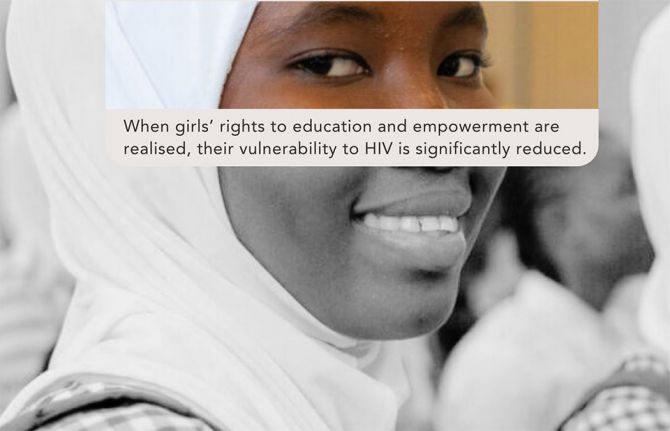
Press Release
At the 68th Commission on Status of Women UNAIDS calls for action to achieve gender equality and end AIDS
11 March 2024 11 March 2024GENEVA/NEW YORK, 11 March 2024 - UNAIDS is gearing up for the 68th session of the Commission on the Status of Women (#CSW68) which begins today and will run until 22 March 2024. #CSW68, the United Nations largest annual gathering on gender equality and women’s empowerment, is being held this year under the priority theme, Accelerating the achievement of gender equality and the empowerment of all women and girls by addressing poverty and strengthening institutions and financing with a gender perspective.
Despite progress, no country has achieved gender equality to date, and violations of women’s human rights and gender-based violence are continuing to fuel the AIDS pandemic. The world is off track to meet the gender targets set out in the Sustainable Development Goals (SDGs) and in many of the world’s poorest countries, the debt crisis is squeezing out investment in education, health, and social protection, particularly hurting women and girls.
Around the world today, 129 million girls are out of school, denying them lifesaving information on how to protect themselves from HIV. Every three minutes, an adolescent girl or young woman (15-24 years) acquired HIV in 2022 in sub-Saharan Africa, and across Africa, AIDS remains the leading cause of death among women of reproductive age.
"There can be no more excuses. Ending AIDS among women and girls is not only a moral imperative but also a strategic priority for achieving the Sustainable Development Goals,” said Winnie Byanyima, Executive Director of UNAIDS. “Only by protecting and investing in the rights of women and girls can we protect their health, and only by protecting women’s health can we end the AIDS pandemic. We must seize this opportunity to accelerate progress towards a world where every woman and girl can, not just survive, but thrive."
During #CSW68 UNAIDS will be co-hosting several key events including a high level meeting co-convened by the Grand Duchy of Luxembourg and Education Plus (a joint initiative of UNAIDS, UNESCO, UNFPA, UNICEF and UN Women) which will mobilize government, partners and stakeholders to accelerate scaled up actions on women’s rights and leverage girls’ education for gender equality and HIV prevention across Africa.
UNAIDS is urging renewed action and anticipates strong outcomes from #CSW68. UNAIDS looks forward to the partnerships that will be forged to accelerate progress towards gender equality and ending AIDS as a global public health threat.
UNAIDS remains steadfast in its commitment to working collaboratively with governments, civil society, and other partners to create a world where the rights and dignity of all women and girls are respected and protected, including women and girls living with, at risk of and affected by HIV.
#CSW68, hosted by the United Nations, will convene leaders, advocates, governments, civil society organizations, activists and experts to discuss, agree on actions and investments that can end women’s poverty and advance gender equality.
Follow the Education Plus event live on Tuesday 12 March at 08:00 – 09:30 EST - Making Education Investment Cases Work for Gender Equality and HIV Prevention
UNAIDS
The Joint United Nations Programme on HIV/AIDS (UNAIDS) leads and inspires the world to achieve its shared vision of zero new HIV infections, zero discrimination and zero AIDS-related deaths. UNAIDS unites the efforts of 11 UN organizations—UNHCR, UNICEF, WFP, UNDP, UNFPA, UNODC, UN Women, ILO, UNESCO, WHO and the World Bank—and works closely with global and national partners towards ending the AIDS epidemic by 2030 as part of the Sustainable Development Goals. Learn more at unaids.org and connect with us on Facebook, Twitter, Instagram and YouTube.
Contact
UNAIDS New YorkRupa Bhadra
tel. +1 646 468 4129
bhadrar@unaids.org
UNAIDS Geneva
Sophie Barton Knott
tel. +41 79 5146896
bartonknotts@unaids.org



